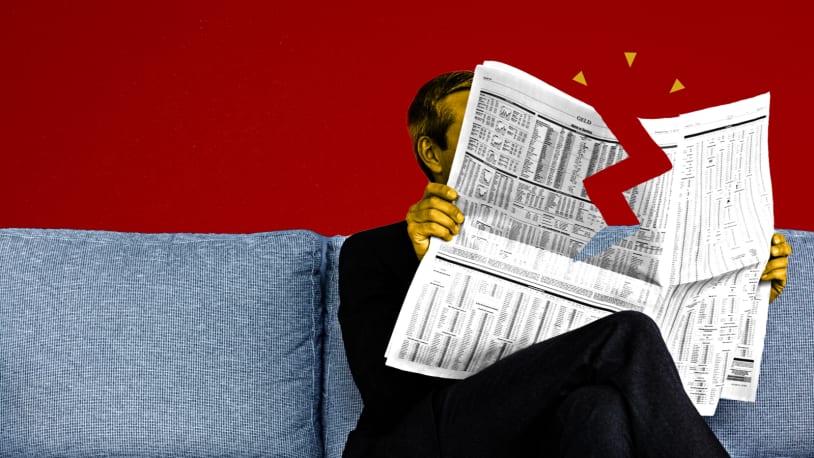
The Scott Adams debate: Was it right to ‘cancel’ his Dilbert cartoon?
The comic strip Dilbert saw its syndication plummet after hundreds of newspapers dropped the satirical office cartoon due to racially charged comments made by its creator, Scott Adams. The controversy ignited during an episode of Adams’ livestreamed YouTube show, when he called Black people a “hate group” and said that “the best advice I would give to white people is to get the hell away from Black people, just get the f–k away … because there is no fixing this.”
Within a day of Adams’ comments, newspapers and media outlets across the United States were cutting ties with Dilbert. Gannett, which publishes newspapers such as USA Today, the Detroit Free Press, Austin American-Statesman, Milwaukee Journal Sentinel, and more than 300 others, said Adams’ views “do not align with our editorial or business values as an organization.” Gannett was joined by The Washington Post, the Los Angeles Times, The New York Times, and dozens more.
Adams has maintained that his comments were not racist, saying in numerous Twitter posts that he was being victimized by the media. Is he right?
Freedom of speech doesn’t mean freedom from consequences
What Adams said on his YouTube channel is “shocking, even by the overblown standards of social media,” Kansas City Star columnist Derek Donovan writes. Adams often exhibits an “antagonistic, childishly macho persona” that his followers on Twitter have come to recognize. And it goes beyond race, Donovan says. Adams has spouted “depressingly commonplace conspiracy theories and other nonsense about the usual contrarian topics: climate change, COVID-19 vaccines, the U.S. Capitol insurrection,” and more. Just because Adams is allowed to “espouse white separatist garbage” on YouTube because it falls under free speech doesn’t mean he should be able to do so without consequence.
Dropping Dilbert isn’t about censorship, says Therese Bottomly, editor of The Oregonian. It’s about editing. “Editors make decisions every day about what to publish, balancing the need to inform against the possibility of offending reader sensibilities.” Adams’ comments were indefensible, she writes, so The Oregonian will not “extend his reach and we will not support him.”
The media is ignoring the context of Adams’ comments
Adams “reacted angrily” to a public opinion poll, writes Abhijit Majumder at Firstpost. The “left-liberal mainstream media” has been “quick” to cancel him, but they’re ignoring the results of the survey, which asked Americans: “Do you agree or disagree with this statement, ‘It’s OK to be white’?” Seventy-two percent of the respondents said they agreed, including 53 percent who are Black.
This is “reverse racism,” Majumder suggests. “If half of the respondents indeed feel it is not OK to be white,” that should be examined, not overlooked, he says, adding: “Identity politics begets identity politics.”
The poll itself is ‘trolly’
This survey was conducted by Rasmussen Reports, a “right-leaning pollster that produces semi-mainstream polls but is noted for its murky methods,” Aymann Ismail writes at Slate. The methodology for this particular poll aren’t clear, and further investigation seems to suggest Rasmussen “found about 34 Black people” who said they “disagree” or “strongly disagree” that it’s “OK to be white.” And that statement in itself is “a right-wing troll that originated in the forums of 4Chan,” Ismail says.
Rasmussen “clearly designed” this poll to stir controversy. “Better pollsters” know that if you want to get a clear picture on Americans’ views on race, you would steer clear of “terms with strong political associations like ‘it’s OK to be white,’ or even ‘Black Lives Matter.’ That is far from what happened here.”
Adams is following a far-right playbook
The cartoonist is serving as “a prime example of the era we live in, a time when some people will say racist or bigoted remarks and then play the victim card,” Dean Obeidallah writes for CNN.
Indeed, Adams himself has often predicted his own cancellation, which is “a common tactic on the right, people amplifying their supposed anti-left credentials by suggesting their views are unacceptably politically incorrect,” columnist Philip Bump writes for The Washington Post. When people like Adams become “immersed in an echo chamber where whites are the victims, they make public assertions that reflect that position.” But when their actions come with consequences, “the echo chamber only grows louder.” For most people, though, outside of that echo chamber, “the view is different.”
The comic strip Dilbert saw its syndication plummet after hundreds of newspapers dropped the satirical office cartoon due to racially charged comments made by its creator, Scott Adams. The controversy ignited during an episode of Adams’ livestreamed YouTube show, when he called Black people a “hate group” and said that “the best advice I would give to…
The comic strip Dilbert saw its syndication plummet after hundreds of newspapers dropped the satirical office cartoon due to racially charged comments made by its creator, Scott Adams. The controversy ignited during an episode of Adams’ livestreamed YouTube show, when he called Black people a “hate group” and said that “the best advice I would give to…